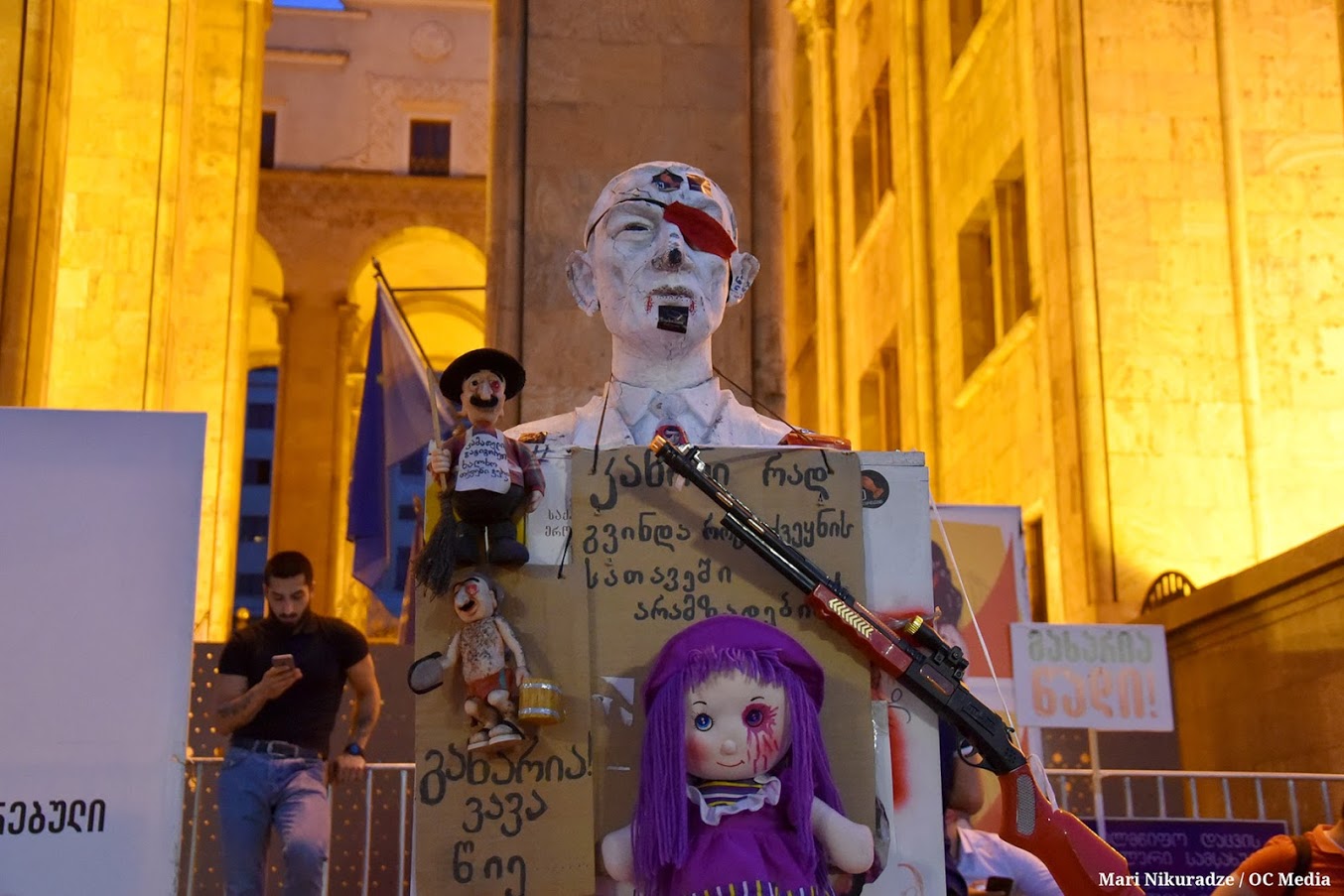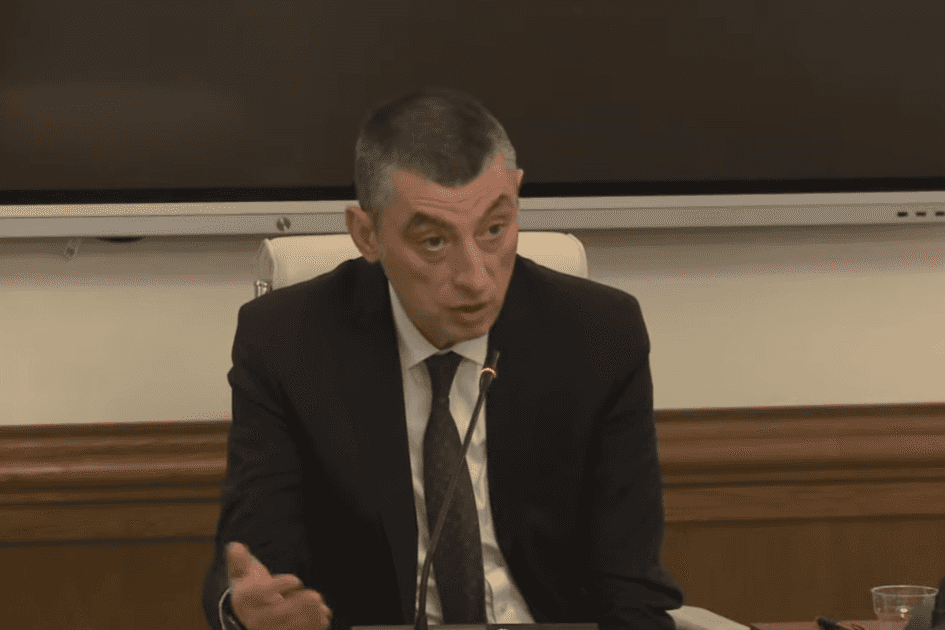Gakharia failed to act but did not give order to use rubber bullets, Public Defender reports

In her annual report to parliament, Public Defender Nino Lomjaria states that police officers used ‘non-lethal weapons’ unlawfully on the night of 20 June last year. However, they did so without being ordered by then-Interior Minister Giorgi Gakharia or his deputy ministers.
The Public Defender’s office, which has been overseeing the ongoing investigation by Georgia’s Chief Prosecutor’s Office into allegations of excessive force led since last July, has confirmed that orders were given by ex-Interior Minister Giorgi Gakharia and his deputies to use tear gas and water cannons but has found nothing to substantiate that orders to use rubber bullets were given.
The protests that took place on the night of 20 June, 2019, were triggered by Russian MP Sergey Gavrilov’s address from the seat of the speaker of the Georgian Parliament, something critics said was inappropriate and offensive given Russia’s role in the conflicts in Abkhazia and South Ossetia.
The night of the protest, police indiscriminately shot rubber bullets at protesters after some of them tried to break through the police line to get inside the parliament building.
The ensuing violence left 217 people hospitalised, including 80 police officers.
[Read more on OC Media: 5 violations by police during the Tbilisi clash]
The Public Defender’s report also found that at the time police officers decided to use the rubber bullets, their ‘life and health’ were not ‘in immediate danger’ — making the deployment of the bullets an illegal act, as a result.
The Public Defender also noted that the law enforcement agencies did not follow their seven recommendations, made in the aftermath of the clashes. The recommendations included criminally prosecuting Giorgi Kakichashvili, the former Director of Special Tasks Department, questioning Gakharia and Deputy Interior Ministers ‘in more detail’, and carrying out a thorough study of electronic communications between Gakharia and his subordinates.
Failure to intervene
The Public Defender’s report, released on 2 April suggests that Giorgi Gakharia did not order the use of rubber bullets, and in fact warned against their deployment. Nevertheless, he failed to intervene in a timely manner once security services began to indiscriminately, and illegally, fire them at protestors.
The report indicated that the former Director of the Special Tasks Department Giorgi Kakichashvili, who was in charge of police on location during the clashes, failed to prevent his immediate subordinates from deploying rubber bullets, despite Giorgi Gakharia and Deputy Interior Ministers warnings their deployment.
These warnings against the use of the bullets were made at 23:36 that night, within the same hour that they were deployed.
The testimonies made by Kakichashvili and his officers during the official investigation reportedly corroborated those made by Gakharia and his three deputies. Kakichashvili said that his men used the rubber bullets out of in-the-moment ‘necessity’ and not because any orders came from above.
Kakichashvili also requested additional bullets be supplied by the Interior Ministry at 02:34, his request was denied.
Kakichashvili was fired as Director of the Special Tasks department two weeks after the initial clashes. Three police officers were indicted for ‘abuse of power’.
After the clashes
After the crackdown, youth groups not affiliated with opposition political parties took over the leadership of street protests, leading continuous gatherings, mostly outside the Parliament, well into December.
The protesters were not satisfied with the firing of Giorgi Kakichishvili and the indictment of three police officers for abuse of power. Instead, they demanded that Giorgi Gakharia resign. But the then-Interior Minister was combative and promised that he would only resign if an investigation revealed ‘systemic mistakes’ were made.
However, when he did finally leave his as Interior Minister in September, it was only because he was being promoted to his current position, Prime Minister of Georgia.

Meanwhile, the Prosecutor’s Office went after 16 anti-government protesters over ‘group violence’. 0n 23 March, Besik Tamliani was the last of the 16 to be released from pre-trial detention on bail.
The release followed a deal between the ruling Georgian Dream party and opposition groups brokered by diplomatic corps in Tbilisi earlier that month. Some opposition parties later alleged it included an informal agreement on ‘stopping political prosecutions’.








